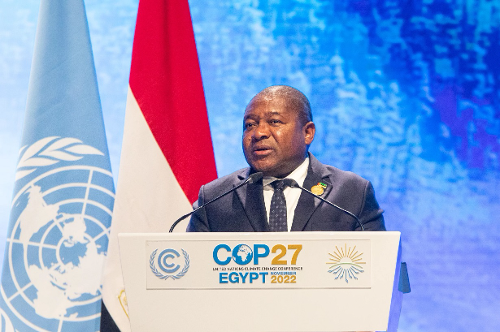Mozambique approves ambitious $80bn energy transition plan

Mozambique's government has approved an Energy Transition Strategy with the aim of reducing the nation's reliance on fossil fuels. The strategy, estimated to cost $80 billion by 2050, is designed to attract financing for economic development. The initial steps include the addition of 2,000 megawatts of hydropower capacity by 2030 and the expansion of the transmission grid to accommodate more renewable energy.
The full program is set to be unveiled by President Filipe Nyusi on December 2 at the COP28 international climate summit in Dubai. The strategy positions Mozambique to be a global leader in climate-aligned development. The government also plans to conduct more auctions, aiming to incentivize the development of privately owned solar and wind power plants.
Additionally, it will establish "green industrial parks" with the goal of promoting the processing of the country's minerals, including those essential for the green transition, such as lithium and graphite. These initiatives align with global efforts to transition to cleaner and more sustainable energy sources while also harnessing the economic potential of renewable resources and fostering green industrial development.
Key Takeaways
Mozambique joins a group of developing countries seeking international funding for transitioning to cleaner energy sources. Similar initiatives have been undertaken by South Africa, Indonesia, Vietnam, and Senegal, which have received commitments of billions of dollars from wealthier nations to reduce their reliance on coal and other fossil fuels. In September, Marcelina Mataveia, Mozambique’s national director of energy, disclosed discussions with Belgium, Germany, the UK, and the United Arab Emirates regarding funding for the energy transition. An investment plan is expected to be announced at the COP meeting. Despite being one of the world's poorest nations, Mozambique boasts abundant hydropower, wind, solar, and natural gas resources. Additionally, the country possesses deposits of key materials for the green transition, such as lithium and graphite, essential components in batteries.

Next Frontier
Stay up to date on major news and events in African markets. Delivered weekly.
Pulse54
UDeep-dives into what’s old and new in Africa’s investment landscape. Delivered twice monthly.
Events
Sign up to stay informed about our regular webinars, product launches, and exhibitions.




